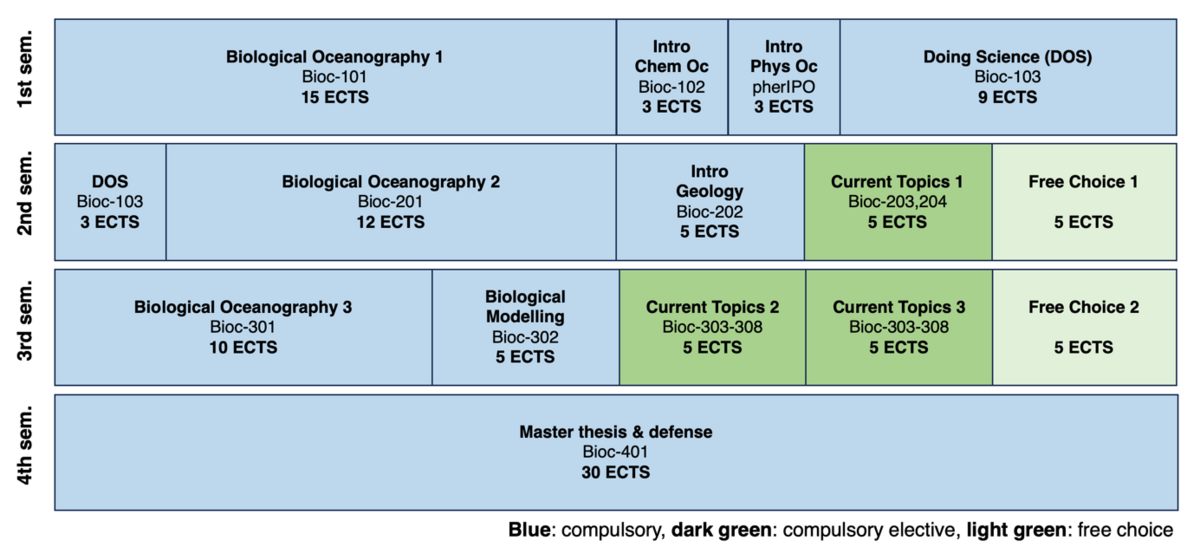Building on the first semester's knowledge and skills, students begin to form their individual focus within the curriculum through compulsory and elective modules. As in the first semester, courses are blocked to allow for a maximum flexibility to run diverse experimental and analytical approaches.
The first week of the semester is devoted to presentation and discussion of research proposals prepared for the Doing Science module (Bioc-103). The following two weeks introduce students to essential practical techniques and theory in Marine Geology and benthic ocean observation (Bioc-202). This is followed by the large Biological Oceanography 2 module (Bioc-201, 10 weeks). Here, students can select practical projects in biogeochemistry and ecology & evolution (3 weeks each) that they run in small groups (2-4 students). These experiments allow for specialization and bring students in contact with the ‘real’ research of group leaders, Postdocs and doctoral candidates.
These projects are followed by blocks with a strong computational foundation (2 weeks each), addressing the need to further develop computing skills in advanced statistics, bioinformatics and large oceanographic data set handling to cope with ever increasing data amounts in the marine sciences.
Current topic modules (5 ECTS) in either ecology & evolution or biogeochemistry introduce students to in-depth concepts in the respective fields and involve seminar discussion and presentation of scientific papers. The semester is completed with 5 ECTS of free choice modules that can either be courses offered within our program in the summer (block courses in Kiel, Büsum and abroad), or courses offered by other curricula at CAU Kiel or other universities – depending on the interests of the student in question.



